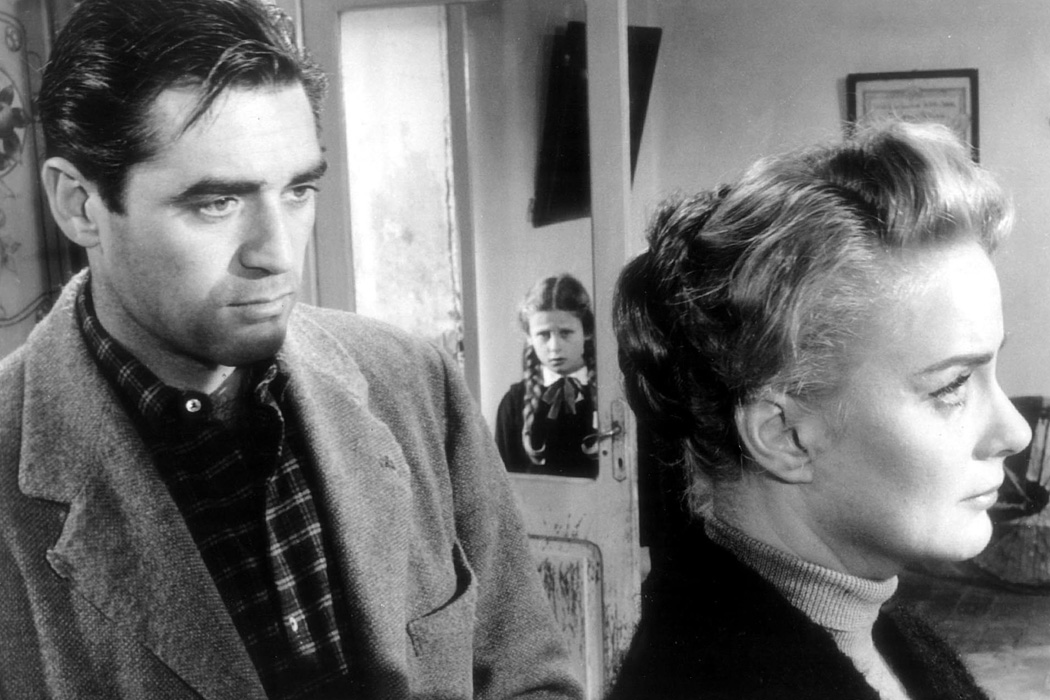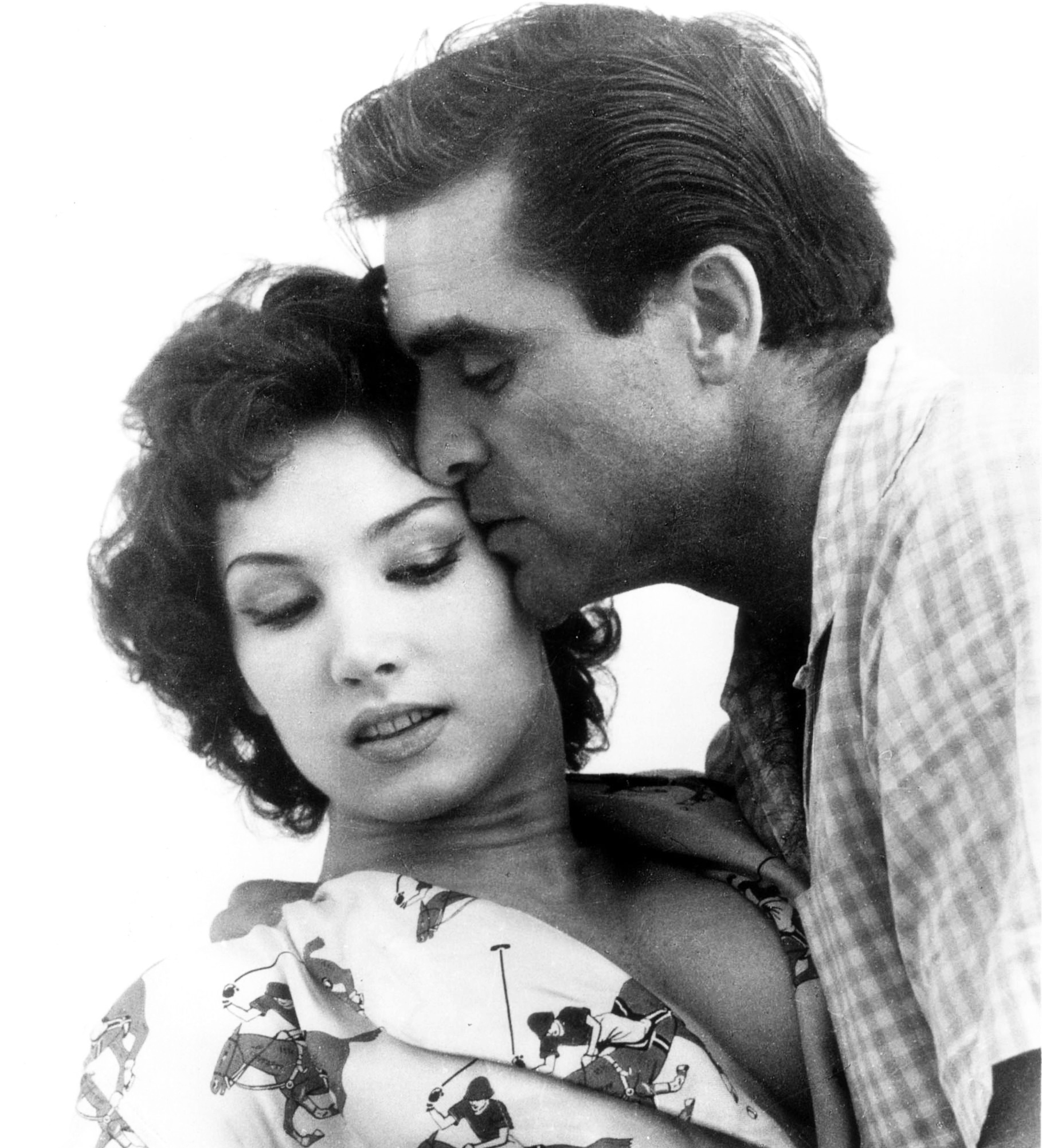Il Grido, released in 1957, was Michelangelo Antonioni’s show reel for the masterpieces of cinema he was to create in his next four films.
It has been described as the missing link between Italian neorealism and the director’s later work, and if in subject matter it’s closer to De Sica’s Bicycle Thieves than to Antonioni’s next film L’Avventura, Il Grido still shows the master director working towards a new form of European cinema he helped to invent.
It what was to become normal for Antonioni, the film opens with a disintegrating relationship as Aldo, played by American tough guy actor Steve Cochran, and Irma played by Alida Valli, break up with the thuggish Aldo slapping and beating up Irma in the street in full view of the rest of the town.
He leaves his job and skips town the next day on the back of a cart without any baggage except for his young daughter Rosina. These are not the urban wanderings of ennui-filled metropolitans of Antonioni’s later movies. Here the angry father and his tag-a-long daughter have mud on their shoes, no change of clothes and don’t know where they’ll sleep, or where their next meal is coming from.
In Il Grido Antonioni raises a cry that’s the emptiness and meaningless of human existence, where love and any hope of redemption seem almost impossible.
Semi-rural life in Italy’s northern Po valley, Antonioni’s own birthplace, is hard and unforgiving. But what stands out is the luminous black and white photography, the desolation and despair that seems to seep into every frame of the muddy landscape, and the memorable compositions and sequences that haunt the viewer for a long time afterwards.
‘Living in a town is too expensive,’ Aldo tells his often neglected daughter and they eventually move in with the alluring but bored Virginia, played by Dorian Gray, and her elderly father, who own a roadside petrol station.
Sparks of sexuality fly between Virginia and Aldo which is probably very dangerous in a petrol station and the two are soon sleeping together, even making love in a mud-bespattered open field while Rosina playing nearby is ignored. Virginia becomes so smitten with Aldo that she puts her father in an old people’s home while Aldo is forced to put his young daughter alone on a bus back home to her mother.

Losing Rosina seems to immediately cause Aldo to no longer have any balance and meaning in his already empty life, as he immediately leaves Virginia and descends even further into despair and aimless wandering. He ends up spending his time with a prostitute living in a filthy, leaking shack on a desolate river shore without money, food or heating.
When Aldo decides to return home, desolate and destitute, the truck stops for petrol at Virginia’s service station and the two confront each other for the last time. Their sexual attraction replaced by resentment and an empty, cold disdain.
Antonioni turns the emotional emptiness of the characters and the landscape into a memorable and thoughtful work of art. There’s not much in the way of social comment on the harshness of everyday life, which let’s not forget was normal for almost everyone just a couple of generations ago.
In Il Grido Antonioni raises a cry that’s the emptiness and meaningless of human existence, where love and any hope of redemption seem almost impossible, and the difficulty of daily life is exposed in beautifully framed but painfully harsh black and white tones.
Luger









